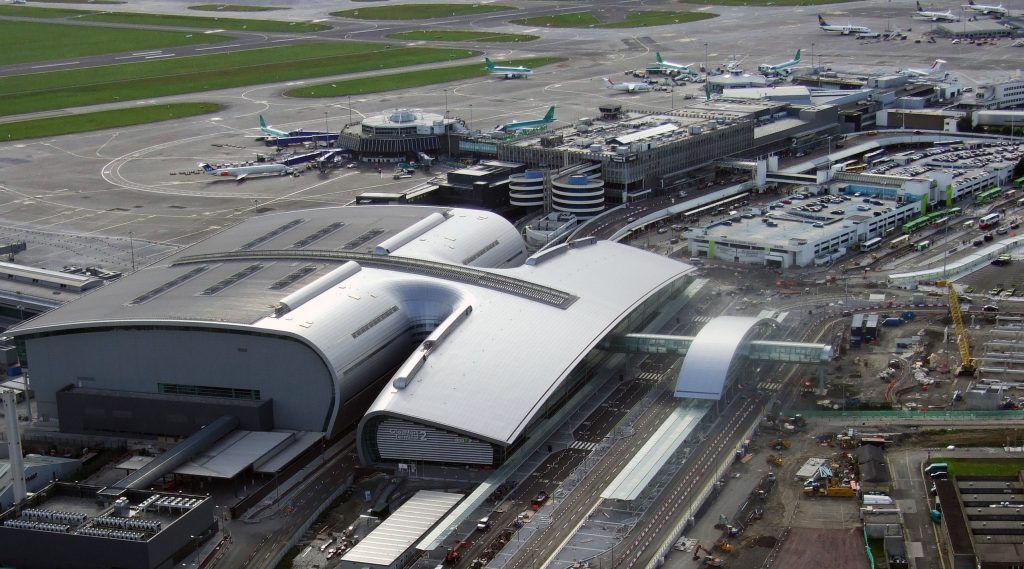Heathrow expansion plan wings clipped by courts

March 2nd, 2020
In a landmark ruling last Thursday, the UK Court of Appeal found the British Government’s planned expansion at Heathrow Airport ignored the UK’s climate commitments under the Paris Agreement.
The proceedings brought by the climate charity Plan B Earth related to the Government’s Airports National Policy Statement (ANPS) setting out the policy framework for the expansion at Heathrow Airport. Heathrow is the busiest airport in Europe, handling up to 70 per cent of the UK’s long-haul flights, 80 million passengers and up to 480,000 air traffic movements.
In its decision, the Court of Appeal found that the Government’s “own firm policy commitments on climate change under the Paris Agreement” should have been taken into account by the Secretary of State in the preparation of the ANPS but were not. “That, in our view, is legally fatal to the ANPS in its present form,” the decision reads.
“We have not decided, and could not decide, that there will be no third runway at Heathrow,” the decision continues. “However, the consequence of our decision is that the Government will now have the opportunity to reconsider the ANPS in accordance with the clear statutory requirements that Parliament has imposed.”
With the industry expected to grow further, emissions from the European aviation sector are predicted to rise annually between one and four per cent in the coming decades. If trends continue globally, aviation may contribute up to 22 per cent of CO2 emissions by 2050.
As well as emitting carbon dioxide, aviation emits pollutants such as nitrogen oxides and particulate matter. When released at high altitudes, nitrogen oxides enhance the lining of the ozone layer which leads to warmer temperatures.

Dublin airport emissions
Reacting to the UK judgement, An Taisce said the decision that represents a major victory for climate campaigners against aviation, a sector which is rapidly expanding its negative environmental impacts around the world.
The environmental charity called on the Government to consider reintroducing the modest air travel tax scrapped in 2014 by Leo Varadkar in his role as the Minister for Transport at the time.
“We know from the science that global carbon emissions have to fall sharply year on year across all sectors in order to have a reasonable chance of avoiding dangerous and irreversible climate thresholds”, a spokesperson for An Taisce said.
“The government is aware of these absolute scientific limits, yet it continues to ‘look the other way’ on plans for airport expansion that are, in the climate emergency, both reckless and absolutely unjustifiable”, the spokesperson added.
In 2018, almost 33 million passengers used Dublin airport with 226,000 aircraft movements in and out of the airport. Last year, Ryanair was named as a “Top Ten” carbon emitter in Europe’s Emission Trading System (ETS).
Since 1990, greenhouse gas emissions from international aviation have more than doubled and international aviation makes up 13.3 per cent of greenhouse gas emissions in the EU.

New runway case
In 2017, Friends of the Irish Environment (FIE) sought a judicial review of Fingal County Council’s decision to extend planning permission for the development of a €320 million runway at Dublin Airport. The environmental group alleged that the council’s Chief Executive was fully aware that the extra runway would result in increased greenhouse gas emissions before granting the five-year extension.
The project, set to be located less than 2km north of the Airport’s existing main runway, was put on hold during the recession. Direct emissions from the aviation industry account for about 2 per cent of global emissions, and are projected to be around 70 per cent higher in 2020 compared to 2005 levels.
Although Judge Barrett rejected FIE’s challenge, he appreciated the group’s climate concern and, in a historic move, recognised the constitutional right to an environment “consistent with dignity and well-being of citizens”. In his judgement, Mr Justice Barrett said that such a right “is an essential condition for the fulfilment of all human rights”.
“It is an indispensable existential right that is enjoyed universally, yet which is vested personally as a right that presents and can be seen always to have presented, and to enjoy protection, under Art. 40.3.1 of the Constitution. It is not so utopian a right that it can never be enforced,” the judgement continued.
[x_author title=”About the Author”]







